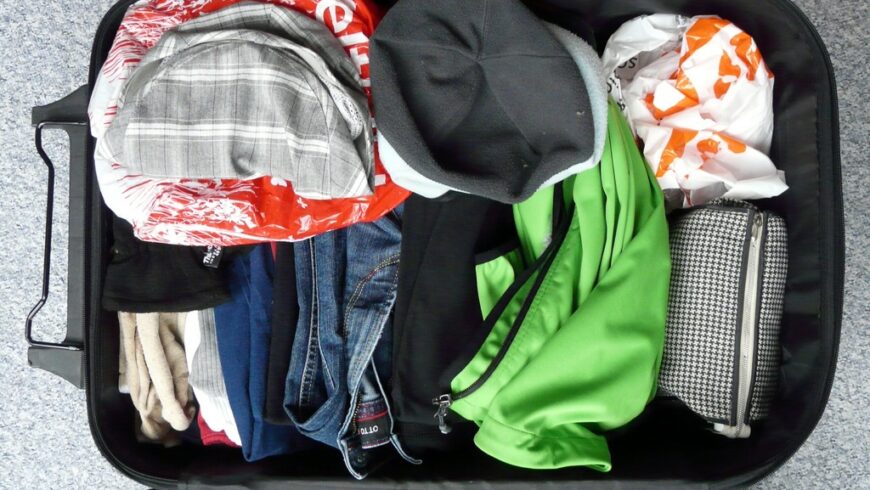As our awareness of environmental issues grows, sustainable travel is becoming more and
more crucial. The tourism sector can significantly impact the environment, but it can also be a
way to change things for the better.
Here are 10 quick actions you can take to travel more sustainably:
1. Choose eco-friendly accommodations

One of the significant factors that can impact the environment through the lens of traveling is
accommodation. To support an eco-friendly accommodation company management, try looking
for hotels, resorts, or rentals that practice waste reduction.
Also, consider a place with water conservation systems and using a renewable energy source
like solar panels. This lessens the environmental impact and supports companies in making a
sustainable difference.
2. Reduce air travel

The use of alternative forms of transportation should always be taken into account. Did you
know that air travel significantly contributes to 1.9% of greenhouse gas emissions globally?
Use public transit such as trains, buses, or other means, or think about traveling to locations
closer to home. When flying is required, choose direct flights over those with stopovers to save
emissions. You should also consider getting a car that runs on salt water. Right, it sounds like a
sci-fi movie. However, a salt water-powered car now exists.
3. Pack light

Lighter aircraft use less fuel, which lowers emissions and fuel consumption when traveling by
air. Only bring what you need, and choose multipurpose clothing and equipment to prevent
overpacking. Choose basic clothing having neutral colors like black, gray, and white. Most
people do not notice you reusing the same clothes if they have earth tones or plain colors.
Utilizing packing cubes is the newest travel trend and the secret to having a compact and light
trip. Your luggage is better organized as a result. Additionally, it prevents you from packing extra
items that could make your bag bulky.
4. Reduce single-use plastic consumption

Single-use plastics, like water bottles, straws, and plastic bags, significantly contribute to environmental degradation. Bring a reusable water bottle, use a cloth shopping bag, and refuse single-use plastics whenever possible. If you think straws and water bottles need to be more packing-friendly, consider buying a foldable and collapsible one.
5. Support local businesses

Locally-owned restaurants reduce carbon footprints. Do you know why? Most of its raw
ingredients are more or less sourced from within its locality. They are supporting the local
community and reducing the need to transport goods from one place to their kitchen. Long-
distance freight of goods contributes to more carbon emissions as the cargo needs to be
transferred to two or more modes of transport.
6. Respect wildlife

Wildlife can be significantly impacted by tourism. Thus, it’s crucial to consider the activities we
engage in.
Avoid participating in wildlife tourism activities that may harm animal welfare, such as elephant
rides and tiger temples. Instead, look for places like national parks or wildlife reserves where
you can see animals in their natural habitats.
7. Save energy

It’s easy to forget about energy conservation when traveling, but it’s essential to be mindful of
energy use, especially in hotels and other accommodations. Turn off lights, air conditioning, and
electronics when not in use, and request that linens and towels are not changed daily.
Consider buying solar-powered power banks or phones. They are now available in the market.
A self-charging phone also uses kinetic energy, heat waves, and electromagnetic induction to
recharge its battery.
8. Be mindful of water usage

Water is a precious resource, so it’s essential to be mindful of water usage when traveling. Take
short showers, avoid leaving taps running unnecessarily, and use low-flow showerheads and
toilets when available.
Also, when you have a private bathroom in your accommodation, you can reduce water usage
by not flushing the toilet after peeing. Have you ever heard the saying, “let it mellow if it’s
yellow”? You don’t have to flush after every pee. However, if it’s brown, flush it down (as the
rhyme goes).
9. Reduce carbon footprint

The carbon footprint of travel can be significant. However, emissions can be offset by buying
carbon credits or participating in conservation initiatives. It is now much easier to lessen the
environmental impact of travel because of the numerous carbon offset schemes offered by
travel agencies, airlines, and lodgings.
10. Educate yourself and others

Last but not least, it’s critical to educate yourself on the local environmental and cultural
challenges in the regions you travel to and spread your knowledge to others. This encourages
more people to adopt sustainable activities by increasing awareness of how vital sustainable
travel is.
Eco-travel is in!

Sustainable travel is about making choices that positively impact the planet and its people.
Whether taking a short trip or a round-the-world adventure, every journey is an opportunity to be
a more sustainable traveler. By taking note of these 10 easy steps, you can minimize the
environmental impact of your travels and make a positive difference in the world.




